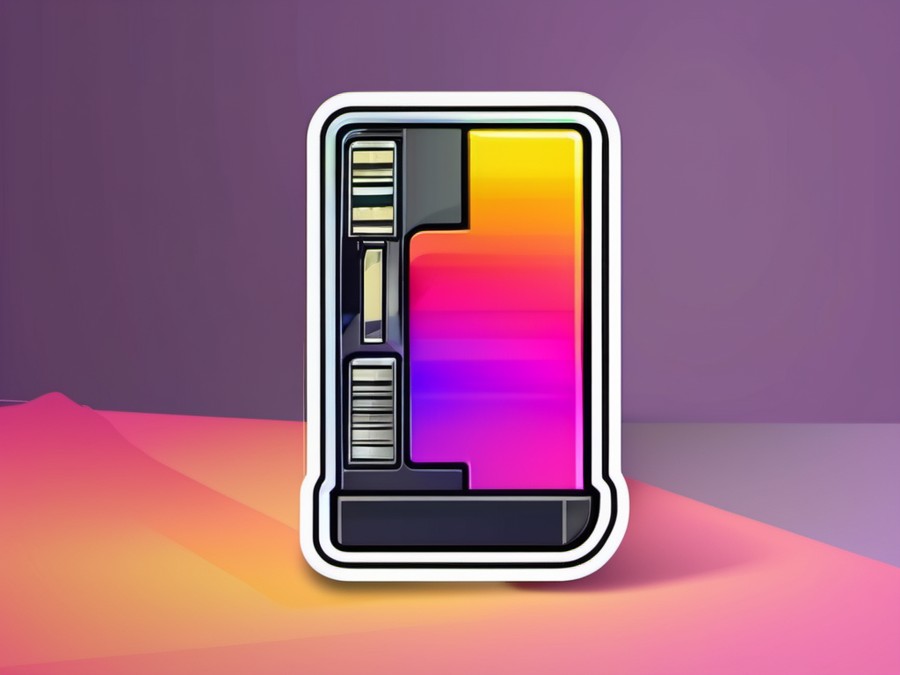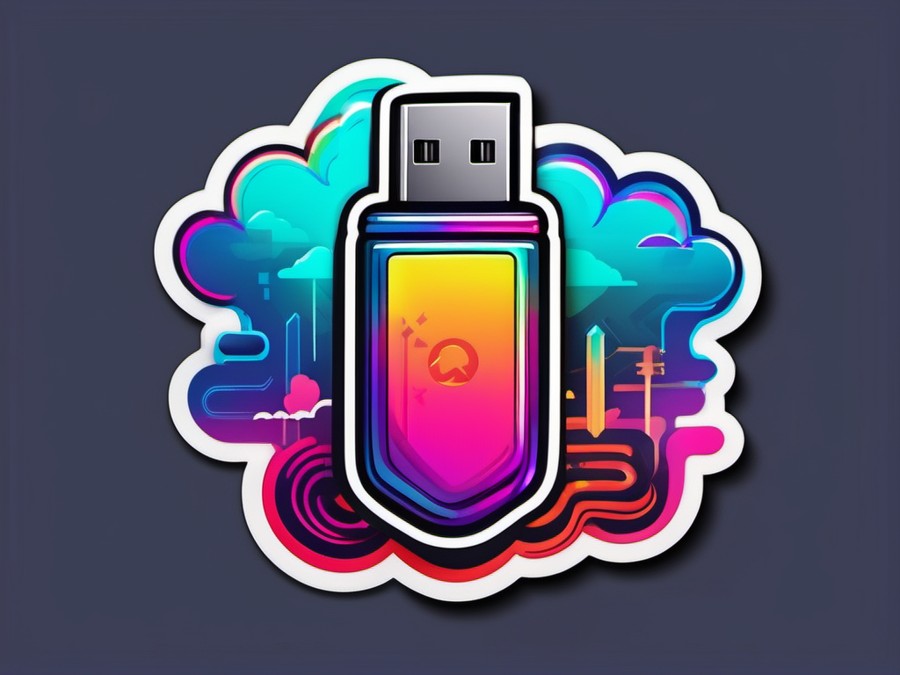· Charlotte Will · Flash Accessories · 7 min read
What is a USB Hub and Why Do You Need One?
Discover what a USB hub is, why you need one, and how to choose the best one for your setup. Enhance connectivity and productivity with this essential tech accessory.

Understanding USB Hubs
What is a USB Hub?
Imagine you’re in a room with only one power socket, but you have multiple devices to charge—a phone, laptop, and a tablet. A USB hub is like having an extension cord that allows you to plug in all your devices at once. In the tech world, a USB hub is a device that expands a single USB port into several, enabling you to connect more peripherals and devices to your computer.
How Does a USB Hub Work?
At its core, a USB hub acts as an intermediary between your computer and the devices you want to connect. When you plug a USB hub into your laptop or desktop, it essentially creates multiple virtual ports that can be used to connect various peripherals. The hub then communicates with your computer, allowing it to recognize and manage all connected devices efficiently.
Types of USB Hubs
Unpowered vs. Powered Hubs
- Unpowered Hubs: These are simple and often compact. They rely on the power supplied by your computer, which can be limiting if you’re connecting multiple power-hungry devices.
- Powered Hubs: These come with their own power supply, ensuring that all connected devices receive adequate power. They are especially useful for connecting high-power consumption devices like external hard drives or USB lights.
Portable vs. Desktop Hubs
- Portable Hubs: Ideal for travel, these hubs are small and lightweight. They offer fewer ports but are convenient for on-the-go use.
- Desktop Hubs: Larger and more robust, these hubs are designed for permanent placement on your desk. They typically offer more ports and better power management capabilities.
Why You Need a USB Hub
Enhanced Connectivity
In today’s world, we often need to connect multiple devices simultaneously—keyboards, mice, external hard drives, printers, and more. A USB hub allows you to do this without having to constantly switch out devices or buy additional adapters.
Boost Productivity
A well-organized workspace can significantly enhance your productivity. By using a USB hub, you can streamline your setup and reduce the clutter of multiple cables running to your computer. This not only looks neater but also makes it easier to manage and switch between devices.
Port Expansion
Modern laptops, particularly ultrabooks and MacBooks, often come with limited USB ports. A USB hub can help you overcome this limitation by expanding the number of available ports, making it easier to connect all your necessary devices at once.
Power and Charging
Many USB hubs come with power delivery features, allowing you to charge your devices while they are in use. This is especially useful for high-power devices like external storage or USB lights, which might not receive enough power from an unpowered hub.
Versatility and Compatibility
USB hubs are designed to be compatible with a wide range of devices, making them incredibly versatile. Whether you’re connecting a keyboard, mouse, printer, or external hard drive, a USB hub can handle it all.
Choosing the Right USB Hub
Features to Look For
- Number of Ports: Ensure the hub has enough ports for all your devices.
- Power Delivery Options: Look for powered hubs if you’re connecting high-power devices.
- Data Transfer Speed: Consider hubs that support higher data transfer rates, like USB 3.0 or Thunderbolt, for faster data transfers.
Best USB Hubs for Laptops
When choosing a USB hub for your laptop, consider the specific ports and features you need. For instance, if you frequently use external storage or high-power devices, a powered USB 3.0 hub would be ideal. You can find more information on choosing the best USB hub.
Considerations for Different Devices
- MacBooks: Look for hubs that support USB-C if your MacBook has limited ports.
- Windows Laptops: Ensure compatibility with the specific USB standards your laptop supports.
- Other Devices: Check for any additional features or connections needed for your specific setup.
Real-Life Applications of USB Hubs
Home Office Setup
In a home office, you might need to connect a keyboard, mouse, monitor, printer, and external hard drive. A USB hub allows you to do this conveniently from a single port on your computer, keeping your desk tidy and organized.
Professional Workstations
For professionals with more complex setups, a USB hub can integrate multiple peripherals efficiently. This includes designers and developers who might need to connect several devices simultaneously for a seamless workflow.
Travel and Portability
When you’re on the go, a compact USB hub can be a lifesaver. It allows you to connect your essential devices without having to carry multiple adapters or cables, making travel simpler and more efficient.
Troubleshooting Common Issues
Device Recognition Problems
Sometimes, your computer might not recognize devices connected through a USB hub. This can often be resolved by updating your USB drivers or checking the connection between the hub and your computer.
Slow Data Transfer
If you’re experiencing slow data transfer speeds, ensure that your hub supports the necessary data transfer rates. Using a USB 3.0 or Thunderbolt hub can significantly improve data transfer speeds.
Power Supply Concerns
If your devices are not functioning properly, it might be due to insufficient power. Using a powered USB hub can help resolve this issue by providing the necessary power to all connected devices.
Future of USB Technology
Advancements in USB Standards
The USB standard has evolved significantly over the years, from USB 2.0 to USB-C and Thunderbolt. Each advancement brings faster data transfer speeds and better compatibility with modern devices.
The Role of USB Hubs in the Future
As our devices become more advanced and require faster data transfer speeds, USB hubs will continue to play a crucial role in expanding connectivity options. They’ll adapt to support new standards and technologies, ensuring that you can connect all your devices seamlessly.
Conclusion
In today’s tech-driven world, a USB hub is more than just a convenience—it’s essential for optimizing productivity and connectivity. Whether you’re setting up a home office, working on a professional workstation, or traveling, a USB hub ensures that all your devices are connected and powered efficiently. By understanding the different types of USB hubs and their applications, you can choose the perfect hub for your needs.
FAQs
Can a USB hub improve my gaming setup?
Yes, a USB hub can significantly enhance your gaming setup by allowing you to connect multiple peripherals like controllers, keyboards, and mice simultaneously. For more information on how a USB hub can benefit your gaming setup, check out this article.
Is it safe to use a USB hub with high-power devices?
Using an unpowered USB hub with high-power devices might not provide enough power, potentially leading to issues. A powered USB hub is recommended for high-power devices as it ensures adequate power supply. For more details, see this article on powered USB hubs.
What is the maximum number of devices I can connect to a USB hub?
The maximum number of devices depends on the type and capacity of your USB hub. Some high-end hubs can support over a dozen devices, while compact ones might be limited to just a few. For more information on choosing the best USB hub, refer to this guide.
How do I know if my USB hub is powered or unpowered?
A powered USB hub typically comes with its own power adapter, indicating that it has a separate power supply. Unpowered USB hubs rely solely on the power provided by your computer. For more details, see this article.
Are there any security concerns when using a USB hub?
While USB hubs are generally safe to use, it’s always a good idea to be cautious when connecting unknown devices. For more information on USB security, check out this article.
This concludes our comprehensive guide on what a USB hub is and why you need one. Whether for everyday use or professional needs, a USB hub can greatly enhance your connectivity and productivity.




